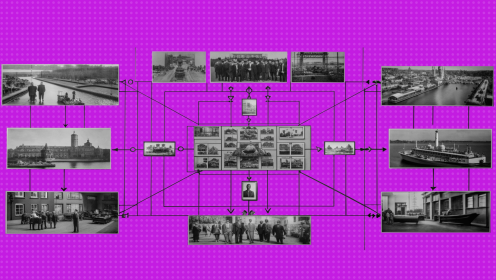As usual, I'll come from afar.
We all have an energy resource that we use to perform various tasks, not necessarily workers. This resource is very limited, so no matter how hard you work alone, if there are too many things to do, you will not have time to do everything with all your desire. Well, either you will, but you will get tired or you will burn out.
One of the best ways to do more is to learn to delegate work, that is, to assign some of your tasks to other people. This is especially important when you are moving up the career ladder to top management — in order to effectively manage, deal with strategic tasks and develop a business, you must necessarily transfer the "turnover" to someone.
Why are we afraid to delegate tasks
And although delegation is one of the most important flexible skills, it becomes a real headache for many people. First of all, because of distrust and fear.
Here are the three main misconceptions that make us unwilling to delegate tasks to other people.
We think we can do it better ourselves
There are two psychological processes that prevent you from delegating tasks:
Self-reinforcement effect — the more involved you are in creating a product, the more you value it. This is something like supercompetence — you think that you are doing your job almost perfectly, and then give someone a task is just scary: "What if someone else does not do the task at this level? I'd rather do it myself." And although you may be right — colleagues can really handle the task not so perfectly - in this situation, you need to remember three things:
- you may just not have a choice, because there is no free time for tasks stupidly left;
- it is better that the task is done well than not done at all (it is easier to control the result and refine it in any way);
- if you do not give a person a chance to cope with the task, he will not develop and will not be able to do the job properly.
Keep in mind that you don't always need a perfect result
Belief in the effect of supervision - the tendency to think that under your control, the work will go better than without it. Such hyper-responsiveness is a direct path to micromanagement. Remember that your time is too precious to spend on controlling everything.
What to delegate: execution or management?
Here I will make a small digression so that the picture with delegation is complete. According to Stephen Covey, author of The Seven Skills of Highly Effective People, there are two approaches to delegation: delegation of execution and delegation of leadership.
In the first case, you, as a manager, are fully responsible for the result, so it is important to you what methods the performer will use to achieve it. And so you control his every step, you micromanage, because the performer for you is just "hands". And this, of course, is bad.
In the second case, the performer is responsible for the result. It is for the result that you will ask him, and what methods he will achieve it-it does not matter. According to Covey (and I tend to agree with him), it is better to delegate leadership, not execution. It will take more time, but it is worth it: the employee will learn to organize the work himself and think with his head, and not act according to"instructions from above".
Make sure that you do not have such selfish prejudices. The team has to trust you, and you have to trust the team.
Afraid of becoming useless
People tend to increase their value to others by taking on new tasks. So it seems to us that we become irreplaceable, and this feeling is very pleasant. However, over time, the pleasant feeling passes, and we are left alone and tired.
Irreplaceability should be of high quality — you need to entrust simple low-level tasks to other people whose qualifications are excellent for them, and spend your time on really important tasks that others definitely can not cope with.
We think that this will take more time and resources
Sometimes it seems to us that teaching someone to do a task is banal longer than just doing it yourself. And if this may be true the first time, then over time the task will actually require less and less of your attention.
Let's say there is a task that takes about an hour, and that needs to be completed once a week. To train another person to do it, you need 4 hours. And now, after just 4 weeks, you will begin to more than recoup the time spent on training — every week you now have an additional free hour! It can be spent on important things.
In short, delegation helps you put your time and skills to better use, and helps other team members grow and develop.
When can I delegate?
It seems that if you overcome the fears of delegation, you can shift tasks to the right and to the left. That's just not always appropriate. To determine if you can delegate a specific task now, ask yourself the following questions:
- Is this a routine task that doesn't require complex skills? As I have repeatedly written above, if you have the opportunity to delegate simple tasks to someone, you must do it to free up your time. Such tasks can definitely be done by someone else.
- This task can pump another person? Many do not delegate because they are afraid that the person will not cope or will not cope so well. But here you need to understand the perspective: if the delegated task is not super-important and can help the employee grow, most likely, it is worth it.
- Can this task be repeated in the future? By delegating repetitive tasks, you free up your time for other things, not only now, but also in the future.
- Do you have time to delegate the task? The time you spend explaining the essence of the task to the employee, monitoring the result, etc., will pay off. The main thing is that you have it.
- Is this a big task that takes a lot of time? Large and important tasks are unlikely to be delegated entirely, but they can be divided into small ones and transferred to other team members.
- Don't you have the skills to do the task quickly and efficiently? Everything is simple: if you need to draw a design layout, and you have never opened Photoshop or Figma, it is unlikely that you will be able to cope with the task as well as a professional designer.
If you were able to answer "yes" to at least one of these questions, it is likely that the task should be delegated.
Task delegation algorithm
Negative experience in any business can permanently discourage the desire to engage in it. People have a tendency to transfer one bad experience to all the potential ones. For example, I was poisoned by watermelon at the age of 6 and for almost 25 years I can't even digest the smell of watermelon. The same thing happens in work, with delegation. Here you assign an employee a simple task — for example, to write an offer based on a template to several clients and send it by mail. And instead of unique offers, he sends the same template by email by post service, and even three days later. And you think: "Damn, I'd rather do it myself". Delusion, of course, but you never delegate anything to anyone else.
Here is a small step-by-step guide that will help you avoid negative experiences when delegating tasks. And for the first time, and in two thousand four hundred and eighty-seventh.
Step 1. Decide on the task and the result
The point of delegation is not to ask someone to do everything for you. This is outsourcing tasks that go beyond your experience and time constraints. Therefore, before you pass the task to another performer, you need to clearly understand what this task is, and what result you need to get in the end. Without this information, you yourself are unlikely to do the task well, let alone another person.
Step 2. Find who to delegate the task to
So, you know what your task is, and what result you want to get in the end. Now you need to find someone who will do this task.
First ask your colleagues if they can delegate the task. You know what tasks you have, and what tasks your colleagues have-not always. If you ask the team members if one of them can take the task, first, you will know their load, and secondly, you will show respect (if the person knows that you respect him, he is more likely to approach the task as responsibly as possible). The devil is in the details, so you need to not just ask everyone the question "Hey, well, who can do this task for me?", but immediately give introductory information:
- deadlines: final and intermediate;
- description of the project or task;
- what do you expect from the performer?
Then choose who you delegate the task to. Of course, you can give it to an employee who has already proven that he can handle this. He will do it well and quickly, but will not be pumped in any way. And since delegation helps not only you free up time, but also your colleagues (potentially) improve their skills and abilities, it makes sense to give the task to a person without experience (well, or almost without it), so that he grows. But you should only do this if the task is not urgent, and you have time to help this person.
Step 3. Get an understanding of the task
Even if you explain the essence of the task to a colleague in as much detail as possible, it is not a fact that he will understand everything. Not because I'm a fool, but because all people are different. You need to say everything, and you need to get him to understand. That is, so that he will tell you the whole point in his own words, and you will understand: yes, everything is true.
You can do this both verbally and in writing — for example, after a discussion, ask the performer to describe in Google Doc how he understood the task. You will get a kind of TK.
Step 4. Provide the necessary resources
Discuss with the performer what resources they will need to complete the task. Of course, he can ask you for everything, but I would not hope for that, and I would find out from him myself.
In addition to the quite obvious resource-time-they can be very diverse:
- financial resources, if the task requires you to buy something;
- people, if the person to whom you delegate a task does not have all the skills to perform it, and he needs specialists to help him;
- tools, if you need, for example, some specific software or devices to perform the task.
When the performer starts the task, they should have everything they need.
Step 5. Give feedback
What you should avoid is micromanagement. Do not chase the performer, and do not ask him every hour how the work on the task is progressing. He must feel trust on your part and a certain freedom of action, without which he will not be able to do his job properly and develop.
Set aside time for meetings where you will monitor the interim results and help the performer if necessary. Find out in advance from him how many such meetings, in his opinion, may be needed, and together make a schedule.
Step 6. Evaluate the result and draw conclusions
When the task is completed and there is a result, together with the employee, evaluate what happened and did not work on the task. Fix what needs to be fixed so that there are no problems in the next similar tasks.
Well, be sure to praise and encourage. If an employee receives money for their work, which includes delegated tasks, then you can do without words. And if it's overtime for him, you can thank him in other ways. We have an article on how to motivate employees—be sure to read it.
If you learn how to delegate tasks well (and this, again, is one of the most difficult and useful management skills), you can not only increase your productivity, but also the productivity of the entire team. Delegation is a cool thing. So stop being afraid, unload yourself, and do something really useful.


















